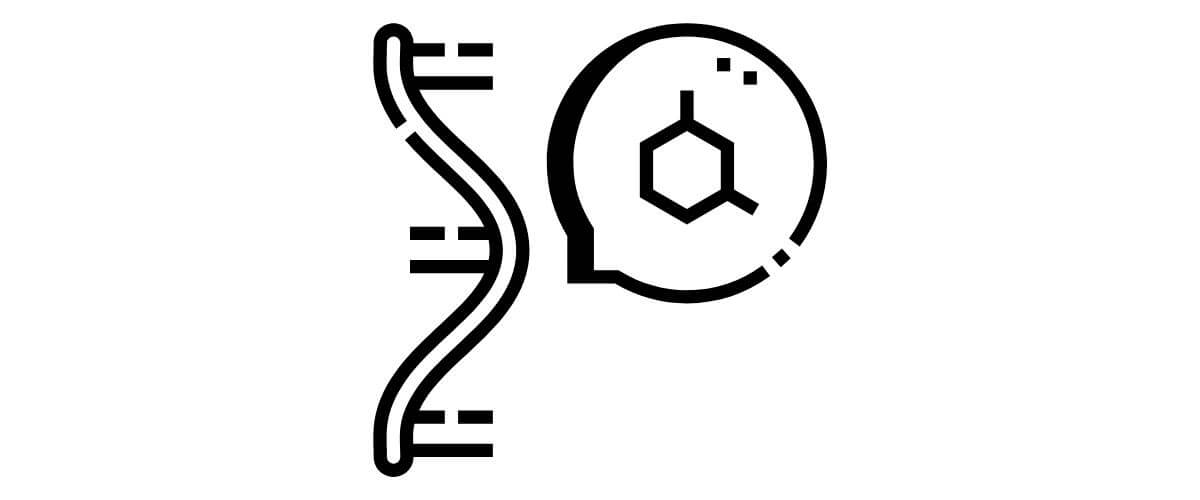
Molecular testing labs are highly specialized spaces made to fit the needs of the discipline, which means that they must be built to certain specifications. In addition to plenty of atmospheric safeguards, molecular laboratories often house large, heavy equipment.
All of these features must be considered when a builder is thinking about how to design a molecular testing lab.
At OnePointe Solutions, we’ve worked with laboratories across the United States. We design laboratories, manufacturing lab cabinets, and storage to custom workbenches and lab tables to optimize the internal layout.
We have experience with laboratories of all types, and we know about all of the legal and functional regulations. Regardless of what you need, we’re here to help.
So, when a OnePointe Solutions designer encounters a molecular testing lab, what do they do?
What Is Molecular Testing?
Molecular testing is one of the many branches of scientific research. Within these laboratories, scientists receive samples and test them for bacteria, genetic information, proteins, and other substances.
Usually, these samples are extremely sensitive. Blood, skin, tissues, and other bodily fluids are frequently found in a molecular testing laboratory.
To avoid cross-contamination and security breaches, these laboratories require specialized biosafety cabinets.
To ensure true biosecurity, many of these labs often feature air filtration systems similar to those found in white rooms and clean rooms.
Molecular Lab Design
Once we confirm the laboratory’s design parameters, we get to work! Our team is extremely experienced, and plenty of excited customers love their renovated spaces.
Laying Things Out
The first step in molecular lab design is creating the basic footprint. Lab cabinets, countertops, and dividers must be placed around existing ductwork, machinery, and plumbing.
At the beginning of the process, we consider what kind of things must be in the room. In a molecular testing laboratory, refrigerators and freezers are a must.
These will serve as storage for essential reagents and samples. Laboratory workers must also have some mass spectroscopy tables, which we can custom build to fit the available space.
To keep samples safe, designers will designate a specific location for a secure biological storage unit.
Alongside all of this, designers must consider the layout of emergency devices. Safety showers, eye wash stations, and fume hoods will need to be installed in easily accessible spots.
Finding Storage Space
Depending on the size of the laboratory, our designers will have to think carefully about storage solutions. In addition to the many samples that must be stored in a molecular testing facility, there must also be plenty of room to keep reagents and testing equipment.
Some of the supplies that will be stocked and stored within one of these laboratories include:
- Autoclaves
- Glassware
- Incubators
- Lab coats and goggles
- Mass spectrometry equipment
- Microscopes
- Microwaves
- Mixers
- pH testing supplies
- Sequencers
- Staining supplies
- Test tubes and slides
- Water baths
All of this equipment needs somewhere to go, and that storage space must be easily accessible to the staff. For this reason, OnePointe solution manufactures all of its cabinetry, which is available in a variety of finishes.
For sensitive spaces like molecular testing labs, designers will frequently use antimicrobial or medical grade cabinetry.
For extremely cramped spaces, designers might utilize mobile storage and workspaces, such as our multifunctional FLEX systems. When equipped with different accessories, — such as drying racks and overhead cabinets — these workspaces become essential parts of a laboratory.
For particularly sensitive surfaces, anti-vibration and locking wheel accessories supplement our already sturdy construction. In some cases, we will create specialty anti-vibration tables to prevent any movement.
Our custom lab counters can be further enhanced with a variety of options. While chemical epoxy resin is a popular choice for laboratories, a molecular testing laboratory might opt for a stainless steel surface, which reduces the likelihood of cross-contamination.
Accommodating for Large Machinery
Every laboratory space in a molecular testing laboratory will require at least one piece of large equipment. Offices need computers, testing spaces need biosafety cabinets, and DNA sequencing areas require a sequencer.
Sometimes, laboratories will need specialized storage tanks, which will frequently contain sensitive and volatile materials.
As our designers create your new laboratory, they take these features into account. Plans will be made to install this technology in specific spots, which will be optimized for access during day-to-day use and maintenance.
Some of these machines will also need to be placed near certain features. For example, a storage tank is best placed close to the station at which it is most frequently used.
A DNA sequencer should be close to the other DNA machinery.
To avoid any unfortunate accidents, designers will also consider the placement of showers and eyewash stations. While they must be easily accessible, they should also be placed away from electrical equipment.
After all, a safety measure that electrocutes its user isn’t very safe!
Within a molecular testing lab, some of the most common forms of large machinery and specialized storage include:
- Biosafety cabinets
- DNA sequencers
- Electrophoresis supplies
- Fridges and freezers
- Industrial autoclaves
- Industrial storage tanks
- Mass spectrometry machines
- Photographic machinery
- Specialized microscopes
- Specimen storage units
- Staining and dyeing stations
As they work around these features, designers will carefully consider how the features will be used. Frequently utilized machinery will be placed in a central area.
If something is not a daily essential, it may be placed in the periphery.
All of this equipment must also be balanced with available working surfaces. Each machine must have nearby storage, which is capable of holding samples and regents.
These surfaces will also be frequently utilized when scientists are loading and unloading samples into the machines. This will also reduce the distance between points A and B, which is convenient and safe.
Depending on the size and placement of machinery, designers may create additional working and storage spaces by adding additional accessories to the area around the machine.
For example, a mass spectrometry table may be accompanied by a shelf and cabinet to hold the appropriate supplies, such as pipettes and Petri dishes.
Creating Functional Spaces
One of the biggest obstacles a designer will face when creating a molecular testing laboratory is cross-contamination. To prevent soiling sensitive samples, these laboratories have specific procedures and steps that must be followed whenever a test is performed.
This frequently means having multiple rooms or spaces for each phase of a test.
Some laboratories have solved this issue by specifically building their layout to include these separate spaces. However, in other situations, the lab may be part of a complex system of ventilation ductwork and dividers.
Partitions are useful for these situations, and — like desks, countertops, and islands — they can be fully customized to include additional features. Drying racks, shelves, and storage units can easily be installed on any of our partitions, which are also custom-built by our skilled team.
Depending on the types of tests being performed within these spaces, labs may need more than a few partitions. Some molecular laboratories function well with only two rooms, but more complex testing locations need three or more rooms.
In other cases, a laboratory might require only one room with highly specialized equipment and unilateral ventilation.
Regardless of what kind of space is being built, it must have plenty of room to move about. The more cramped space is, the more likely it is for an accident to occur.
To avoid any bumps or spills, designers must carefully balance working spaces, countertops, machinery, and space for movement.
Aisles must be wide enough for ample movement and workers should be able to easily evacuate in the event of an emergency. Storage space must be sufficient, too, as overflowing supplies will frequently be stacked in walkways, which can be disastrous when rapid movement is necessary.
Adding Office Space
In some cases, our designers are also asked to create functional office spaces. While cubicles may be common, they’re not always pretty, and many of them aren’t the most functional.
To make up for this, our designers create fully customized desks and workstations. These may include mobility functions, such as wheels and casters, or they may be static.
Depending on the laboratory’s available space, desks may have additional storage solutions.
As we build these spaces out, we keep wiring in mind. Laboratories require plenty of electrical work, as computers and machinery must be powered on at all times.
Slots for electrical wiring and simple extension cords are essential to properly lay out any office, and they can be added to any cabinet, counter, desk, FLEX system, and partition.
Need Help Designing Your Molecular Laboratory?
Regardless of how large or small your project may be, it’s all about the details.
When you’re creating something as specific and sensitive as a molecular testing laboratory, you need to have help. You’ll want to enlist experts, and those experts should have plenty of experience with laboratory design.
At OnePointe Solutions, we’ve spent years developing our amazing design strategies. We know how to design a molecular testing laboratory, and we know how to optimize your space.
We’ve got you covered from lab casework options like powder-coated metal cabinets, stainless steel cabinets, and plastic laminate cabinets to epoxy resin countertops, fume hoods, mass spec benches, and more.
Give us a call today at (866) 612-7312 to get started today.


